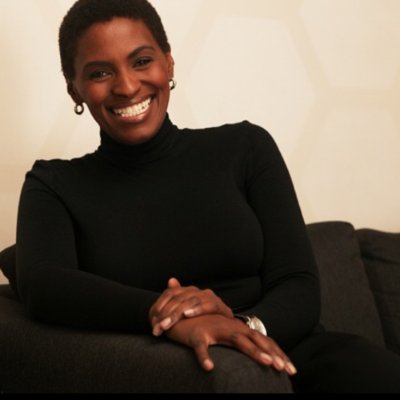 When she begins her career in the advertising industry at the end of the 1980s in South Africa, Nunu Ntshingila discovers a universe she describes as being “very white and very masculine”. Let us take another look at an Africa fully involved in a digital (r)evolution, through the eyes of a woman promoting afro-responsibility on the continent.
When she begins her career in the advertising industry at the end of the 1980s in South Africa, Nunu Ntshingila discovers a universe she describes as being “very white and very masculine”. Let us take another look at an Africa fully involved in a digital (r)evolution, through the eyes of a woman promoting afro-responsibility on the continent.
An activist in women access to leadership
« After staying in the US for my studies, I came back to South Africa to work at Nike’s in communication. When I came back in the advertising sector, South Africa had democratized itself. I particularly remember debates on the role of women in the development of the post-apartheid country. It was reassuring to know we were involved in these types of discussions”, says Nunu Ntshingila who, at almost 50, is about to leave the world of advertising and to take the lead of Facebook in Africa. In 2011, Nunu Ntshingila joined the Executive Committee of Ogilvy & Mather, becoming the only representative of the African continent to serve on the committee, amongst thirty executives.
« The access of women to executive positions is a determining factor, especially in the creative industry, as they are required to speak up to be represented with respect ». Representation, explains Nunu Ntshingila, also takes into account the race issue, an issue which, according to her, is not about to disappear easily in South Africa. She believes that the distribution of wealth would be a good solution to remedy the racial tensions that still divide the country: “We must ensure that diversity can take root in our environment. All the capital currently belongs to the white minority, we must ensure that this capital belongs to the majority.”
A stronger advertisement market, thanks to the new technologies
In 2015, the advertisement market’s growth in Africa is estimated at 8%, against 5% in the rest of the world. On this topic, Nunu Ntshingila confirms: “It is true that the market evolves a great deal. But I insist on the fact that we should guide this evolution ourselves. When we talk about Africa in motion, it is important that Africans first appropriate this idea. I am sceptical when this message comes from outside the continent. We need to make Africa grow, as Africans. Today, people here want to live in better conditions. This is why the diaspora realises the potential of the continent and goes back to Africa.”
Asked about the impact of digital, she admits that she does not believe in a negative aspect of this revolution for the advertisement market. “The press was a pillar of our strategies, and we really feel in South Africa, a concentration of the advertisement market towards digital. We need to adapt to new technologies”
New technologies, such as the mobile
According to a study published at the beginning of the year by Frost & Sullivan on mobile usage trends in Subsaharan Africa, mobile penetration rate should attain 79% in 2020. “Mobile has allowed a leap forward regarding the way we communicate with consumers. Technology has allowed to reduce the gap between urban and rural areas. It is also a powerful tool to hear the voices of the poorest. It has even transformed the way we communicate between countries. Here, it is time for erasing the boundaries”, affirms the woman who has participated to the development of the international group on advertisement in 14 African countries.
Despite the optimistic perspective she has on the current state of the African advertisement market, Nunu Ntshingila remains lucid on the long road ahead. There are disparities, especially between Maghreb, Egypt and South Africa, and the rest of Sub-saharan Africa. A report from the Alliance For Affordable Internet shows that French-speaking African countries are particularly affected by the high costs of high speed internet. “In Africa, what will determine the evolution of advertisement will be the cost of high speed internet”, she declares. This cost is one among the many obstacles that the future director of Facebook will face when developing the social network on the African network, from the month of September.
Translated by M.C.
